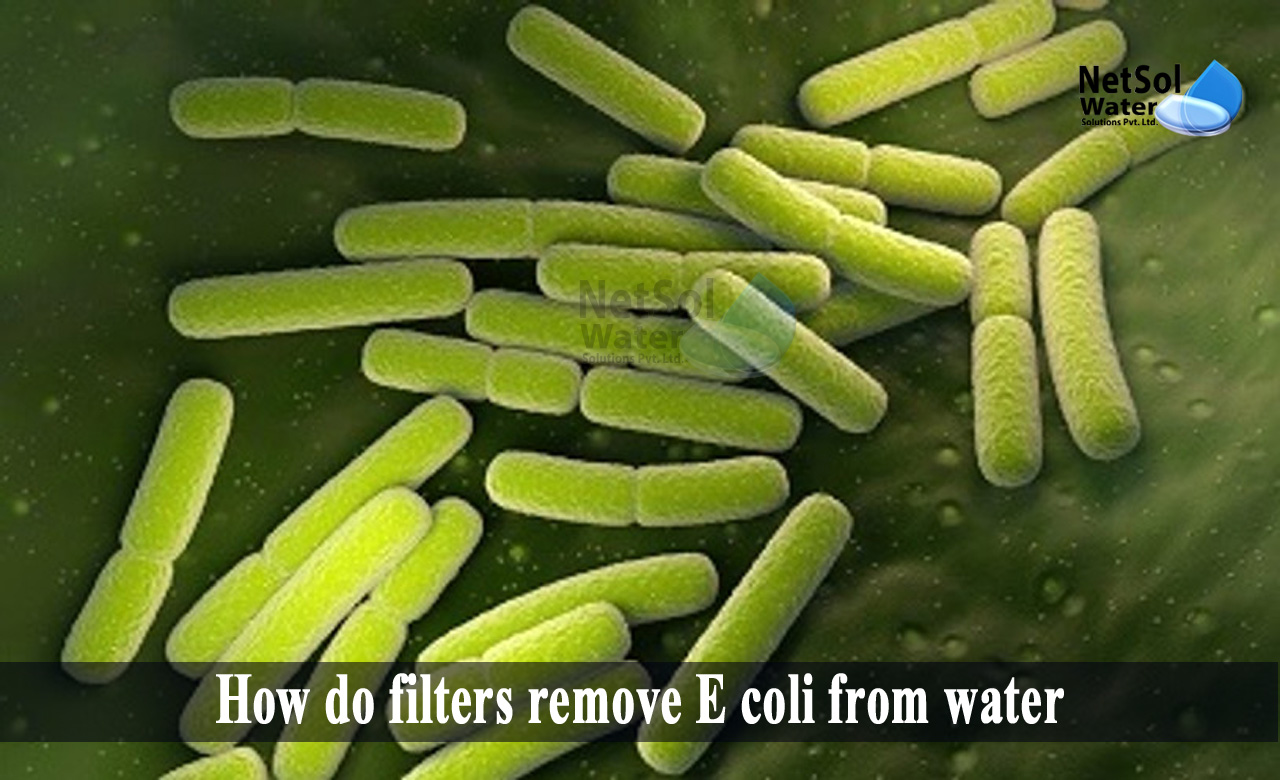What is an E. coli?
Our intestines typically harbour a particular form of bacteria called E. coli (Escherichia coli). The majority of these species are safe. Some even support the health of your digestive system. But, if you consume infected food as well as drink tainted water, some of the types can make you throw up.
While, many of us connect E. coli with food poisoning, other kinds of the bacteria can also cause pneumonia and urinary tract infections. In actuality, E. coli is to blame for 75 to 95% of urinary tract infections. It normally lives in the gut, which is how it enters the urinary system.
When the water is contaminated with E.coli, using the water treatment techniques is the only way to reverse its disastrous effects. It means that we have to remove the E.coli from our water systems, and this could be achieved with the use of water filters. Let’s see how!
How large is E. coli?
Since, E.coli is so tiny, it is virtually hard to filter them out. Only 2 micrometres length and half a micrometre wide, an E.coli microbe is considered to be normal in size. A human hair strand is roughly 50 micrometres thick, as a point of comparison.
How can you tell whether your water contains E. coli?
You can only be sure whether you have E.coli in your water by having it tested at least once a year, at a licenced water testing facility because coliform bacteria have no taste, smell, or colour.
The water should be checked at least once every three months for sources of water, which are polluted with bacteria. A thorough water test will reveal a full range of chemical and microbiological factors. After a lot of rain, when there is a high chance of contamination, it is a good idea to have your water supply checked.
How does E.coli become waterborne?
E-Coli is a hazardous bacteria that when exposed to humans, can have catastrophic effects on their health. Coliform bacteria, which make up a much bigger group of bacteria, include E-Coli.
Animal faeces entering waterways including rivers, lakes, and groundwater before it has a time to decay, is the cause of the presence of E.coli, which causes drinking water to contain hazardous quantities of the bacterium.
Do water filters eliminate E.coli from drinking water?
Through the use of sophisticated water treatment filters, which frequently do not require chemicals or power, bacteria like E.coli can be cleaned.
The addition of chlorine is one method for treating E-Coli. Chlorine is frequently added to drinking water sources via chemical dosing pumps, where it functions as a disinfectant by killing microorganisms. Although, chlorine is thought to be an effective E. coli treatment, there are two common water filters that can deal with this problem.
1: RO Plants
Reverse osmosis systems are the original kind, and they are quite effective at getting rid of E.coli from drinking water. In these RO Plants, filtration membranes are used to drive water through them, while blocking contaminants like E. coli.
2: UV Systems
Reverse osmosis systems frequently require a second source of filtration, since they can't completely eliminate E. coli from drinking water. By using high intensity radiation to eradicate microorganisms, UV systems have earned a reputation as the most cost-efficient and effective water treatment option.
All of the microorganisms in the water are killed by ultraviolet radiation, as the water moves through the UV system.
Which water treatment methods are most effective for treating E. coli?
1: Reverse osmosis, nanofiltration, and ultrafiltration are examples of membrane technologies, which can be useful but can be challenging to monitor over time for performance and effectiveness.
2: The most effective option is UV disinfection, which uses no chemicals, is inexpensive, simple to maintain, and does not alter flavour or odour. To kill 99.99% of E. coli, a UV dosage of about 6 mJ/cm2 is required.
3: Chlorine and chloramine approach has the potential to be very effective, but it can be challenging for individual owners to use correctly without under- or overdosing.
The water's flavour and odour are also altered by chlorine, and by-products of disinfection including trihalomethanes and HAA, run the danger of forming.
Advantages of using RO Plants and UV systems for removing E.coli from water
While, reverse osmosis systems have been effective at getting rid of E. coli, UV water treatment systems along-with RO Systems, are now more popular because they don't require handling or adding chemicals to the water.
Conclusion
For any user who need water purification solutions for E. coli and other viruses or waterborne pathogens, UV systems plus RO Plants are incredibly robust and easy to maintain.
You can enjoy clean drinking water without having to be concerned about E. coli contamination, by using the right water treatment technology, routine testing and maintenance of your water source, and safety measures surrounding farming operations and septic systems.
Choosing the best manufacturer of Commercial RO Plants and water treatment plants in India
Netsol Water is one of the top businesses offering effective water management solutions. Our advanced water treatment products aid in the treatment of water, reducing TDS levels, and other microscopic organisms, with the elimination of unpleasant odours, etc.
Netsol Water is Greater Noida-based leading water & wastewater treatment plant manufacturer. We are industry's most demanding company based on client review and work quality. We are known as best commercial RO plant manufacturers, industrial RO plant manufacturer, sewage treatment plant manufacturer, Water Softener Plant Manufacturers and effluent treatment plant manufacturers. Apart from this 24x7 customer support is our USP. Call on +91-9650608473, or write us at enquiry@netsolwater.com for any support, inquiry or product-purchase related query.



